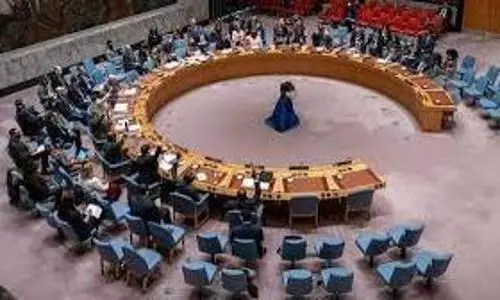
A solution more dangerous than the problem
text_fieldsUnion home minister Amit Shah has introduced in Rajya Sabha the bill to scrap Article 370 that grants special status to the state of Jammu-Kashmir. The bill followed an order issued in this connection by President Ram Nath Kovind. In addition to scrapping Article 370, the plan is to alter the status of Jammu-Kashmir and divide the state into two union territories, Ladakh and Jammu-Kashmir, the former without a legislature and the latter with a legislature similar to what Delhi has now.
The decision cannot be described as unexpected. For, it was one of the promises in BJP’s election manifesto, and with BJP’s return to power with greater majority, it was almost certain that the party would proceed along the lines. But the time and manner of this is not what was predicted. The validity and desirability of the step is bound to generate heated debate. While parties including BSP, Aam Aadmi Party and BJD stand with BJP, the Congress, left parties and the parties from Kashmir are openly against the move. Fears that the reform – introduced as a permanent solution to the Kashmir problem – may lead to more legal complexities and to the internationalization of the issue, is not entirely out of place. More importantly, this is likely to affect more adversely the lives of the people of kashmir. It is only out of concern that things may turn into an untoward incidents, that the government took preacautionary steps that even a state like Kashmir has never seen before including militarization, media curbs and preventive detentions. In fact, not even a feeble attempt was made by the Modi government to solve Jammu-Kashmir conundrum. Even during the climax of secessionism, it was possible to conduct assembly elections there – also with voter turnout rising in an interim period. But in the state where elections were held in 2002, 2008 and 2014, it was after 2014 that law and order collapsed to such an extent as to make polls impossible. The same period witnessed also an increase in the number of soldiers getting killed.
Jammu-Kashmir joined India in 1947 on the basis of bilaterally agreed conditions, which form the basis for Article 370 and 35A. As per this, those who are not permanent residents in the state do not have rights including te right to buy landed property. It was also laid down that Jammu-Kashmir would have a separate constitution and the right to make laws in this respect. There are no provisions in India’s constitution that will take away these privileges. However, sadly enough under Article 370 that state had been experiencing the ‘specal status’ only with ‘special tragedies’. After all, factors ranging from the conflicts between two countries to secessionism and terrorist activities hurt the peaceful life of ordinary Kashmiris. While in power, parties including Congress, had used the critical nature of Kashmir, only for their own political interests. Now with the repeal of Article 370, fears about things getting out of hand to unpredictable levels, are only natural.
As unfair as the substance of the changes brought in are the means adopted for this. One cannot blame those who consider that the very propaganda of the existence of terror threats against Amarnath Yatra pilgrimage, were fake as it happened in the case of note-ban. People were put in panic and made helpless – with an intent for taking such a harsh step. It appears as though the Central government has not taken law or democracy seriously in this process. There is a question even how legally well-founded the presidential order is. It states that it was issued with "concurrence of the Government of State of Jammu and Kashmir". Jammu-Kashmir does not have a government or a legislature in place now. What it has is only an administration by the governor, who is a nominee of the President. As per legal procedure, how valid will this be? What difference then between this order and an order in a totalitarian set-up? Kashmir is not a piece of land; it consists of people. And how can an act bereft of any interest of its people be democratic? This step will psychologically alienate the majority of Kashmiris who chose not to join Pakistan or to secede but to be with India; and it will harm also the larger national interest. There is absolutely no justice, rationale or democracy behind this serious constitutional sabotage carried out without any debate or consultation. In fact, even BJP’s promise in its election manifesto that it will work with all related parties for the abrogation of Article 370 is being breached here. We are giving one more opportunity for the world’s nations to rate India as a country that revels in muscle power and continually violate democratic norms. This is not solving the problem, but aggravating it.











